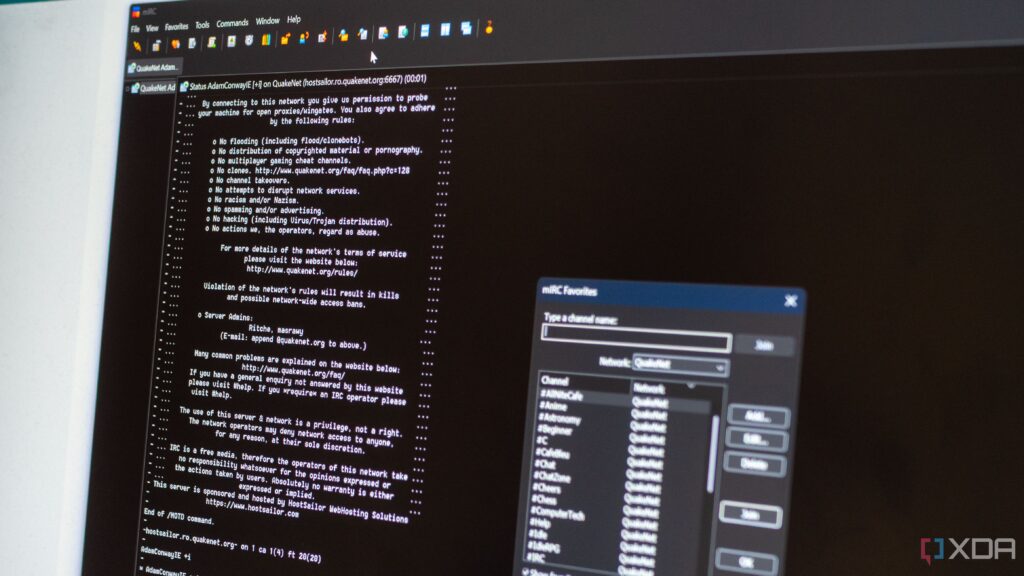
BREAKING NEWS: The legacy of Internet Relay Chat (IRC), a pivotal communication tool dating back to August 1988, is making headlines as the influence of its innovative design resurfaces in today’s digital landscape. Initially developed by Jarkko Oikarinen at the University of Oulu in Finland, IRC was the first platform to enable real-time group conversations, predating even the World Wide Web.
URGENT UPDATE: As social media platforms evolve, the foundational elements of IRC are re-emerging in services like Discord and Slack. Users are rediscovering IRC’s unique charm, which thrived with 40 servers globally by 1989, and at its peak, boasted an astounding 243,394 users on QuakeNet in February 2005. This resurgence is prompting discussions about the enduring relevance of IRC in the face of today’s fast-paced communication tools.
The current digital environment is witnessing a shift as users yearn for simpler, more direct forms of interaction. Many are turning back to IRC, where the absence of algorithms allows human connection without barriers. The platform’s minimalist approach—text only, no distractions—promises a unique social experience that modern apps struggle to replicate.
IMMEDIATE IMPACT: This revival of interest in IRC highlights a significant cultural shift as people seek authenticity in their online interactions. Unlike the curated experiences of modern social media, IRC allows users to engage in real-time conversations, fostering a sense of community that many find lacking elsewhere. Users from diverse backgrounds can come together, share ideas, and play games—experiences that shaped the early days of the internet.
This trend is particularly evident among gaming communities and open-source developers, who continue to utilize IRC for collaboration and communication. The platform remains a vital resource, with numerous active channels dedicated to various interests, ensuring that its legacy is not merely a relic of the past.
WHAT’S NEXT: As IRC garners renewed interest, experts suggest that this could signal a broader trend towards decentralized communication tools that prioritize user autonomy. The conversation around IRC’s influence is expanding, as it becomes increasingly clear that many of today’s popular communication features—like channel-based discussions and moderation bots—have their roots firmly planted in IRC’s history.
In a world dominated by data-driven algorithms, IRC stands as a testament to the power of straightforward communication. Users are encouraged to explore this unique platform, which offers a refreshing alternative to modern messaging apps.
FINAL THOUGHT: For those who grew up with IRC, it remains a nostalgic yet relevant part of their digital lives. For newcomers, it presents an opportunity to experience the raw, unfiltered essence of online conversation. IRC is still alive and thriving, waiting for a new generation to discover its potential.





